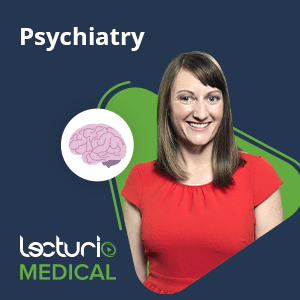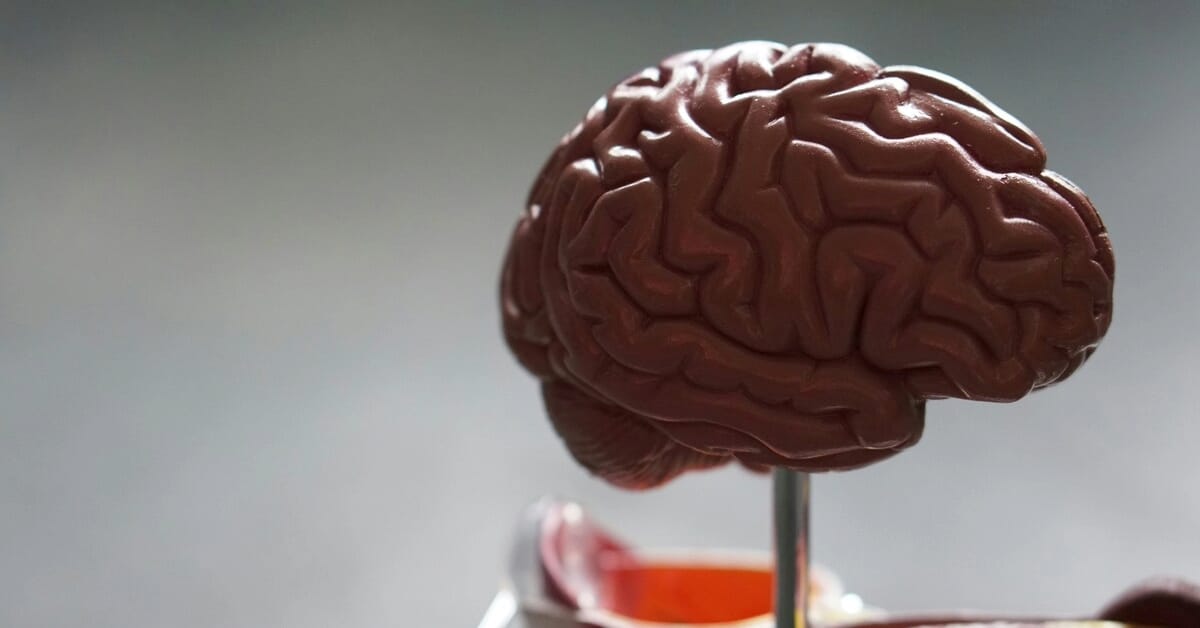When people think of psychiatrists, they think of the tweed jackets and comfy seats where the patients sit, talking endlessly about their emotions. Many people think that where other doctors deal with the physical afflictions of a person, the psychiatrists deal strictly with the mind. However, you’ll find that psychiatry is more holistic than you might think.
It’s a common misconception that psychiatrists are those doctors that sit in their offices listening to people’s problems for hours then call it a day and go home. While psychiatrists do listen to patients in their office and their history-taking is more extensive than other specialties, that’s not the only thing they do. Many psychiatrists are researchers, teachers, and even forensic specialists.
In this article, I’ll be discussing the broad world of psychiatry: the different fields and jobs that exist in this specialty that you can pursue once you’ve finished training. But first, let’s discuss what psychiatry is and how it differs with therapists, whom they are often mistaken for.
What is psychiatry?
Psychiatry is a field of medicine that focuses on diagnosing and managing mental disorders. Where other branches focus on the physical ailments of the body, psychiatrists focus on mental health. This encompasses disturbances in thoughts, emotions, and behavior. They also study how physical ailments can affect a patient’s mental health.
This can be a difficult field to grasp because, apart from the stigma and discrimination associated with mental health, mental disorders themselves are hard to pin down. Unlike physical disorders where you can run definitive tests or study the physical characteristics of a patient to come up with the diagnosis, mental disorders can manifest differently with different patients because behavior varies per person.

Take the Course: Psychiatry
Dr. Joseph Alpert, MD, from Tucson University, Arizona is an experienced cardiologist who shares his extensive expertise to help you gain practical, real-world knowledge that extends beyond textbook theories. This course provides an in-depth look into the causes, signs, diagnosis, and treatment of major cardiac diseases.
Psychiatrists vs therapists
Psychiatrists and therapists are often mistakenly interchanged with each other. It’s important to know the difference because their approach towards mental health conditions vary, and when to reach out to one or the other.
A psychiatrist is a medical doctor who treats patients with prescribed medications. That means they have a medical degree and a license to prescribe medications. They went through medical school then completed their residency in psychiatry. Some also take fellowship to subspecialize in a more specific field under psychiatry, which we’ll discuss later in this article.
Therapists on the other hand, provide counseling services. There are different kinds of therapy that are effective for various disorders and therapists are usually the ones to administer these therapies. They usually don’t have a license to prescribe medications. They usually have a masters degree or PhD in clinical psychology or a related field along with a license to work as a therapist. However, some states allow psychologists to prescribe some medications.
Psychiatrists can perform therapy along with the medications they prescribe. But most of the time, they refer their patients to a therapist for people who require it. Patients ideally work with both a psychiatrist and a therapist to manage their disorder.
What do psychiatrists do?
We know that a psychiatrist diagnoses and manages cases of mental disorders, but what does the job actually entail? If you were to visit a psychiatrist, your first visit will be focused on building rapport and assessing your mindset, attitudes, and behavior. While all fields of medicine require you to build a sense of trust with your patient, psychiatrists need more time with their patients because they need them to open up on a deeper level.
As they assess their patient’s mental and physical symptoms, they can also run tests. Where physical diseases have diagnostic tests to help identify a problem, psychiatry can run questionnaires and tests to get a better understanding of their patient’s disorder. The sessions after that depend on the condition of the patient, but most of the time, psychiatrists provide long-term management as most mental disorders don’t have a cure. Instead of curing diseases, psychiatrists help patients cope with their symptoms so that they can perform their daily tasks better.
Psychiatrists usually have a private practice where their patients follow-up. Meanwhile, some have in-patients in hospitals where they do rounds as well. For in-patients, their ultimate goal is to help them cope with their disorder until they are stable enough to discharge, equipped with effective coping skills to help them function normally. Psychiatrists also manage urgent care cases like intoxication due to substance abuse, deliberate overdose on medications, and suicide attempts and ideations.
Specializations of psychiatry
Psychiatry has a broad spectrum of subspecialties. There are nearly 300 mental disorders in the DSM-5, the Diagnostic and Statistical Manual of Mental Disorders. This book is the bible of psychiatry because it contains the diagnostic criteria for mental disorders. With that many, there are a lot of specializations in psychiatry that you might want to consider (but are not limited to):
Adult
Being an adult is complex, to say the least. This is where you spend most of your life so a bulk of disorders tend to manifest in the working age. That makes this field a very broad one, with a wide range of conditions. The management here focuses on helping patients function at work, home, and social settings.
Common conditions here include depression, anxiety, eating disorders, schizophrenia, and bipolar disorders. All these conditions can impair a person’s professional life and relationships, which are a big part of adulthood.
Addiction and substance use
While substance use disorders (SUD) are one of the many categories of disorders in the DSM-5, you will frequently meet a lot of these specialists. SUDs affect millions of Americans in a year. In 2023, around 16.7% of Americans at the age of 12 and above have battled with this condition with 2.7% being both drugs and alcohol and 7.9% in co-occurrence with another mental disorder.
These psychiatrists play a large role in rehabilitating patients as well as helping families recover with them. They deal with addiction concerns that are also not related to any substance-use like gambling addictions. They can also treat addiction problems that authors of the DSM-5 have considered adding as official disorders, such as internet gaming disorder. As long as they cause significant impairment in the normal function of the patient, they may fall under this specialty.
Child and adolescent
Child development is all about change and there’s a lot of it. That’s why there are multiple theories on the psychological stages of childhood alone. From Freud, to Piaget, to Erikson, child development is a complicated process that varies per child because of a mix of their hereditary traits, environment, and upbringing.
For children, neurodevelopmental disorders are the main focus. Any deviation from the normal milestones of development are a cause for any parent’s concern, and to ensure the child’s quality of life in the future, it requires immediate intervention. However, as they get older, they’re also at risk for developing disorders like depression, anxiety, or dissociative identity disorder.
Geriatric
Next, we move to the other side of the spectrum: geriatrics, or the elderly. Where those who are young are focused on growing their daily functions, the elderly tend to lose some functions the older they get. Geriatric care focuses on chronic illnesses, maintaining daily activities, and optimizing their quality of life as they reach their later years.
Typical disorders treated by geriatric psychiatrists include sleep disorders, dementia, and due to the frustrations that come with aging, depression. Due to the advances of medicine, the life expectancy of humans have significantly increased, meaning that geriatric care is more in demand than ever.
Neuropsychiatry
This is where neurology meets psychiatry, where the brain meets behavior. This specialization focuses on how derangements in neurobiology can affect a person’s behavior and how they can help them cope through remediation and rehabilitation strategies.
This field manages cases like Parkinson’s, early-onset dementia, and Huntington’s disease. This field usually works hand-in-hand with neurology, looking at brain CT scans and MRIs to help link the patient’s symptoms with problems in brain structure and genetic abnormalities to come up with more focused management.
Other careers as a psychiatrist
Psychiatrists are not limited to the clinic or hospital. Patient interaction is not the end-all-be-all of medicine. If you want to become a psychiatrist, you can pursue work in other settings such as:
Academics
Some psychiatrists may prefer to teach students apart from meeting with patients. Many of your lecturers in medical school or undergraduate classes in psychology can be psychiatrists. So if you prefer teaching students or want to teach aside from your clinical practice, you can apply for universities to teach psychology-related subjects.
Research
One step to fighting the stigma on mental health and increasing awareness is to shine more light on the subject to help people understand what people with mental disorders go through. Even now, globally, two-thirds of the population with mental illness are either untreated or not treated adequately. If you want to help deepen people’s understanding of mental illnesses and related conditions, research is a reasonable alternative career for psychiatrists.
Forensic
This is actually a subspecialty of clinical psychiatry, but I placed it in this section because it’s a significantly different setting from working in the clinic or hospital. This is where psychiatry practice meets law. Forensic psychiatrists have to assess a person’s risk of harming themselves or others.
They also provide advice to the courts, probation services, prison services, etc. Typical patients in this field are people who have committed crimes or are mentally unwell in prison. Forensic psychiatrists act as an expert witness in court to assess a defendant’s fitness to stand trial, their capacity to form intent, nature of mental illnesses and possible risks associated with it, and other related assessments that the court would like to know.




